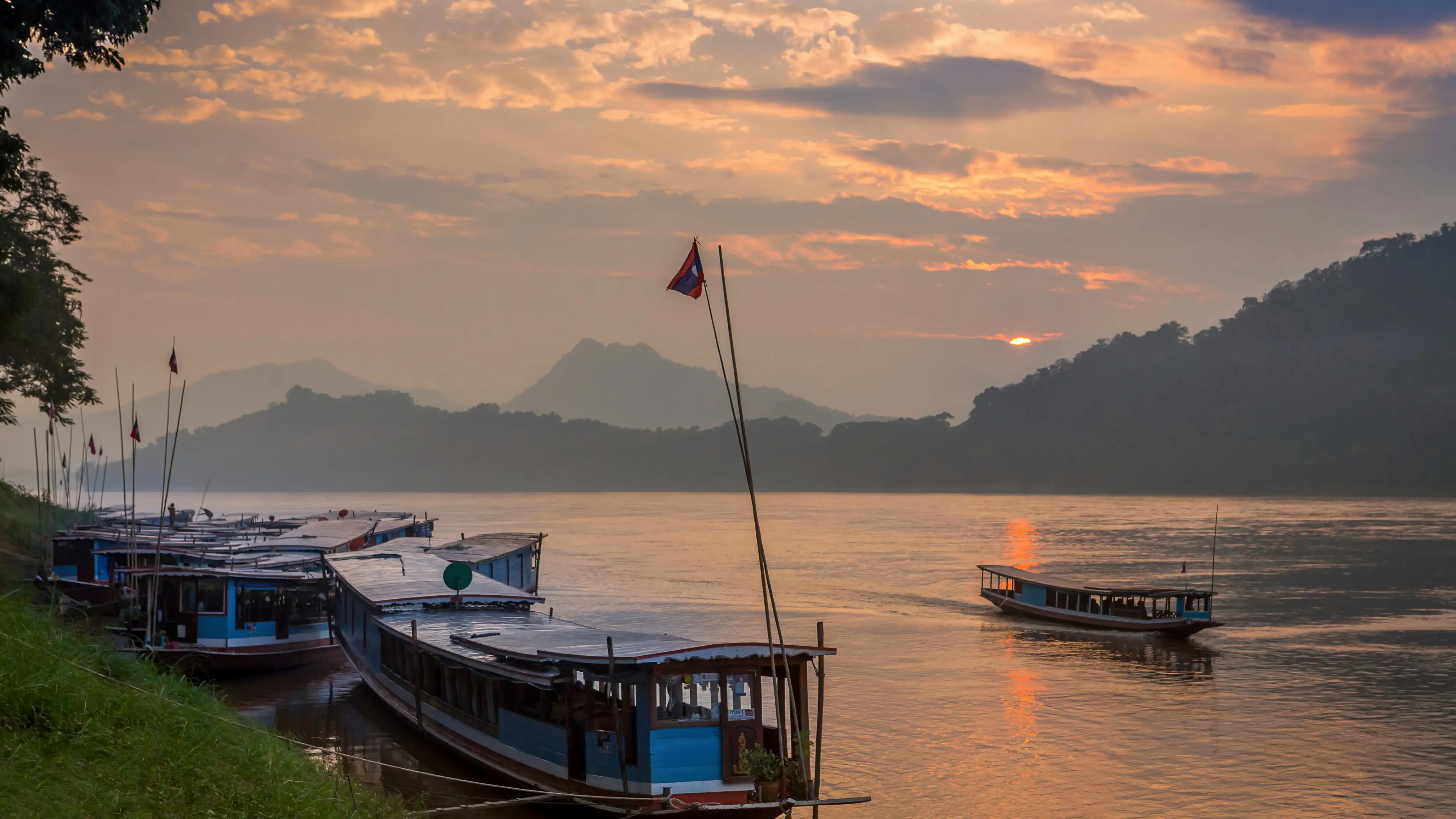
Mekong River Basin
Mekong River Basin
The Mekong River Basin in Southeast Asia faces multiple similar challenges to the European basins (e.g., hydropower, water quality, sedimentation, biodiversity) but with different socio-economic and climatic conditions and thus can be used for knowledge transfer in both directions.
Mekong
The Mekong River is one of the world’s longest rivers, flows for almost 4,000 km from its sources in Tibet through China the Sea draining a basin area of 795,000 km2 and with a mean annual flow volume of about 475 km3. It comprises six socially and culturally diverse countries and includes diverse flora and fauna. The southern portion of the river, which includes the Mekong delta, is highly populated, and livelihoods, food production, and transport depend heavily on the river. The Mekong delta, mainly located in Vietnam, is among the major delta regions in the world. About two thirds of the delta area is used as arable land and provides approximately 50% of Vietnam’s total rice production. The Mekong delta is subject to a range of challenges due to climatic and management changes (both locally and upstream). The exploitation of hydropower potential along the Mekong River has reduced sediment flows affecting the sediment balance of the delta, and water pollution upstream has substantially decreased the quality of water downstream. The decrease in flow in the dry season and the ongoing sea-level rise significantly increase saline intrusion in the delta. The overexploitation of groundwater resources in the Mekong delta area has led to land subsidence. In addition, intensive sand mining is also contributing to reduce sand load to the delta.
Impact Drivers
The major drivers of key impacts of mainstream hydropower development on lower Mekong basin (LMB)
natural, social, and economic systems include:
- Changes in the river system flows and LMB flooding patterns, increased irrigation withdrawals, compounded by climate change and sea level rise.
- Changes in sediment flows largely as a result of trapping within the reservoirs and to a smaller extent due to the changes in stream power and flooding patterns.
- Changes in water quality and nutrient flows largely resulting from the combined effect of altered flows and sediment loadings combined with water quality changes resulting from expanded irrigated agriculture and increases in wastewater discharges from urban and industrial centres.
- Physical fish migration barriers created by the proposed mainstream dams.
Major Impacts
In general, hydropower projects alter downstream flow regimes and sediment transport dynamics within riverine systems. In addition, changes could also result in water chemistry; physical habitat; habitat connectivity; and composition, structure, and function of biological communities. Mekong Delta Study (2014) identified the following major impacts that are likely to result in the LMB from changes in Mekong River flow regimes and water quality as a result of mainstream hydropower development:
- Decrease in flood plain and coastal land productivity as a consequence of reduction of flooding, sediment and nutrient flows primarily resulting from increased storage and sediment trapping within the basin.
- Increased risk of bank erosion, which may in part be lessened by reduced wet season flows but aggravated by river regime change as the river system adjusts to new sediment loads.
- Impacts of fluctuating dry season flow depths, compounded by the presence of the proposed new mainstream dams, on riverine habitats including bank-side and exposed river bed seasonal gardens and deep pools and the consequential impacts on local livelihoods and on fish refuges and spawning areas.
- Changing in natural nutrients driven by increased sediment trapping and modified by changes in flow patterns (particularly with regard to the Tonle Sap system, but also the Mekong Delta flood plains) whilst at the same time the likelihood of increased runoff of agricultural input residues due to irrigated agriculture expansion and economic pressures to raise yields.
- Changes in saline intrusion in the Mekong Delta brought about by fluctuations in dry season flows from the increases in storages (especially those in the UMB) and climate change induced sea-level rise.
- Reduction in extent of wetlands and key habitat areas as a consequence of modified flow patterns, the reduction of their productivity as a result of reduced sediment and nutrient flows and the consequential impact of both on the sustainability of various species, some of which are already endangered by human activity.
- Combined effects of the flow, sediment, and water quality alterations on the basin’s rich biodiversity including several key rare, threatened and unique wildlife.

